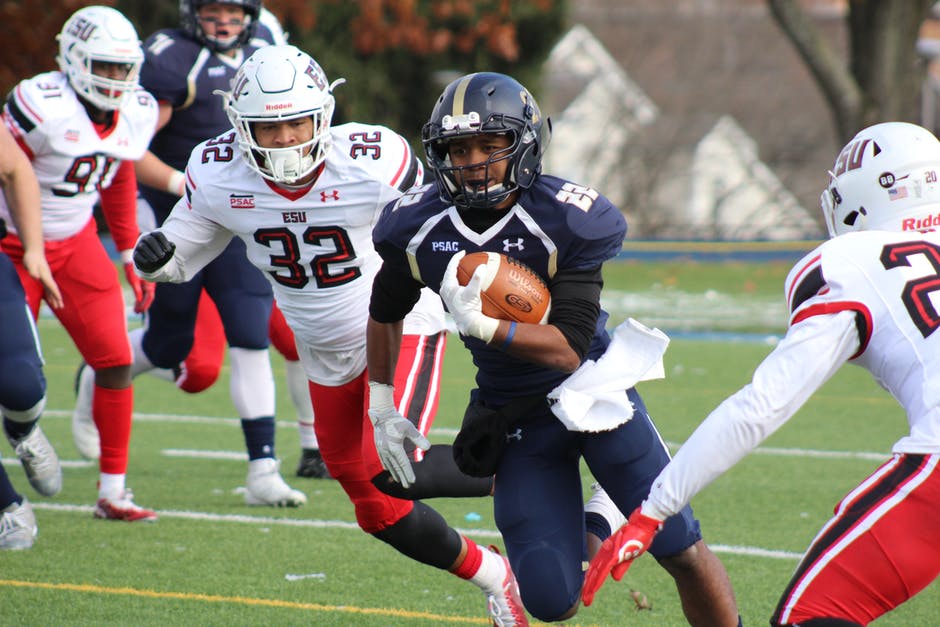Every year in the United States, more than 142 million people attend professional sports events. From soccer to baseball to ice skating, watching live sports is one of America's favorite pastimes.
So if you are thinking of putting on your own sports event you are sure to find an audience for it! In fact, you could make some serious money as the US sports market is currently worth an outstanding $388 billion.
However, whether you are organizing national, college, or town sports, you have an obligation to deliver a high-quality event. Without this, sports teams won't take you seriously and customers may ask for their money back.
So where do you start when it comes to planning a sports event? Read on to find out everything you need to do to make sure your sports event comes off without a hitch!
1. Put Together a Budget
First things first, if you are organizing an event you need to know the budget that you're working with. This might be determined by the:
- Organization funding the event
- Amount of fundraising you can secure from local supporters and investors
- How much support you can secure from advertising
Your budget will determine everything from the size of your event to the activities that you can offer at it.
If you are working with a tight budget, it is a good idea to focus on delivering a quality event. So stick with a smaller plan and nail it. Throwing one great outdoor sports event can put you in good standing for your next one (with, hopefully, a bigger budget!)
2. Decide What Sort of Sports Event You're Going to Organize
Once you know the budget you're working with you can think about the type of event you want to put on and what sort of scale you're working with.
The type of event you choose will have a big impact on the logistics that you need to think about. For example, spectator events will require seating and large screens for watching a game or race on. In comparison, marathons will require serious route planning and permissions.
This will also determine who is going to attend your event and the type of venue you'll need to hire. Having a clear idea of this will help you to organize the rest of your event.
3. Decide How Many Attendees You Want
It is important to think carefully about the number of attendees and participants you want to come to your event. This will be dictated by your budget and will determine the size of the venue that you need.
For example, if you are putting on a soccer match then you will have:
- A minimum of two teams
- Reserve players
- Managers, physical therapists, and support staff for each team
On top of this, you will have to accommodate the supporters for each team in your venue.
Smaller local teams will obviously have fewer supporters. However, if fans are local then they are more likely to attend a game so you want a venue that will be able to accommodate them. That way you can sell more tickets to your event!
4. Make a List of Staff and Volunteer Numbers
Once you know roughly how many people you want to attend your event you can think about the staff. You will need plenty of staff to cover the following areas:
- Set-up of your sports event
- Ticket registration and check-in on the day
- Information stands
- Concession and refreshment stands
- Cleaning during and after your event
- Scorekeeping and umpiring
- Car parking
- Hospitality
- Health and safety
- Security
It is also a good idea to have a number of staff on hand to support the team that you have managing your event. They can act as runners between different departments and help things to run smoothly on the day.
The exact number of people you need to hire will be determined by the size of your event.
If you are hiring a large number of staff then make sure you use a reputable company. That way you can rest assured that you won't have any dropouts on the day itself.
5. Secure Your Venue
A good venue is the lynchpin of any sporting event so you want to secure this early. Your venue should fit the number of fans and sports professionals attending your event. When looking at venues you should also consider:
- Its location
- The facilities it has to offer
- Whether it can accommodate your sporting activities
- How much it costs
The venue that you choose will make a big statement about the tone and quality of your sporting event. So it is worth keeping this in mind when choosing one.
For example, if you want to throw a large, professional event then you want a venue with state-of-the-art facilities. In comparison, if you are throwing a local tournament then you can save some money by using local playing fields.
6. Organize Your Ticketing System
As plans start to come together for your sporting event, you will start thinking about ticketing. Before you officially sell any tickets through you need a ticketing system that is going to work.
It is a good idea to invest in an online ticket platform for this. These platforms make ticket sales straightforward and offer troubleshooting support on demand. So once you do start selling, you don't have to worry about organizing your ticket sales.
7. Get Serious About Promotion
Once you have got your ticketing system organized, you can start promoting your event. You should do this in plenty of time to secure as many early ticket sales as possible. This gives you as much time as possible to sell out your sports event.
When promoting an event, make sure you include key information such as:
- The when and where it will take place
- Who the event is for (e.g. "families welcome")
- What exactly the event is (match, tournament, or sports club fundraiser)
You should also emphasize details that will catch people's attention. For example, if you are going to have live entertainment or food and drink available at your outdoor event, mention this!
You should advertise your event locally and online. Make sure you create a social media page for your event and update this regularly to remind people about it.
You may also want to consider paying for advertisements if you have the budget. Or you could reach out to local businesses that might be interested in promoting your event.
8. Put Together a Safety and Security Plan
If you are running an event then you are responsible for the safety of your attendees. If you fail to provide a proper safety plan and something does go wrong, you could face a hefty lawsuit!
Because of this, you should make sure that you have:
- A proper medical team available on-site
- First aid points around your event
- A trained crowd management team
- Free water stations available around your event
- Emergency meeting points that are easy to spot
The organization of your venue can also have a big impact on how safe it is. So make sure that you have plenty of routes and exits available so that people can get around your venue safely.
You should also do a thorough risk assessment of your event and outline procedures to manage safety issues if they do arise. That way you know your event is covered.
9. Prepare for the Weather
As we all know, the weather in America can shift greatly throughout the year. In fact, from summer to winter average temperatures can fluctuate between 70.7°F and 26.6°F. Because of this, it is important to think carefully about the weather when planning your event.
Sports events in summer are less likely to be affected by rain but this isn't a certainty. On top of this, scorching temperatures can be as dangerous as extreme rain for athletes. So make sure you think about how the weather will affect:
- Participant safety
- Crowd safety
- Transportation to and from the event
- Your venue's safety and risk assessment
If possible, make sure you get event insurance that covers you for the weather. That way if you have to cancel your event because of extreme weather, you will be able to recover financially.
Get Help Organizing Your Sports Event Today
A sports event can be a great day out and very lucrative if you plan it well. However, there is a lot to consider if your event is going to come off without a hitch and make you money. Planning ahead will help you stay organized and on top of your event planning!
Need help putting your sporting event together? Then join the Pitch In Club today! We'll help you get your event going in no time at all.

